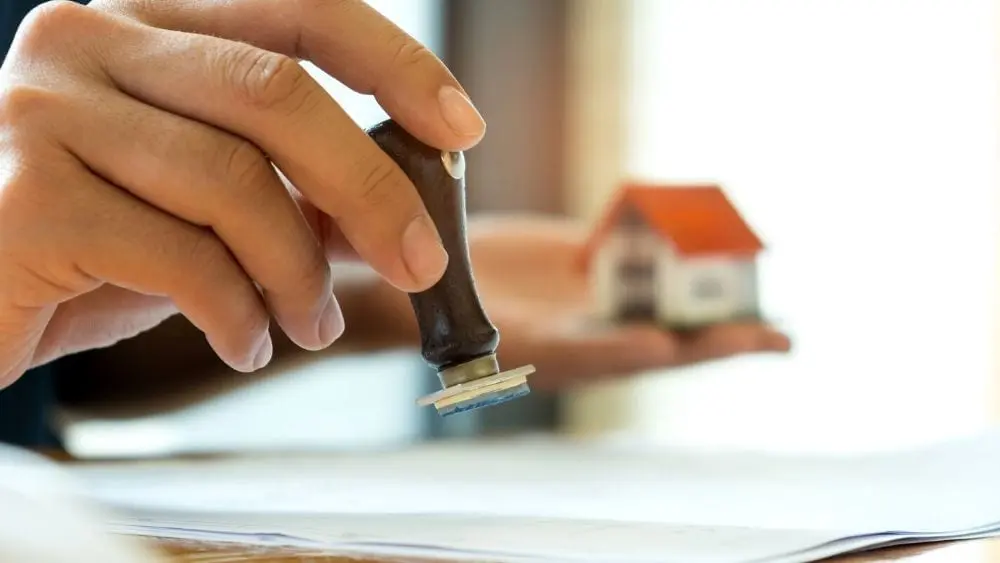
The journey to building a custom home varies and may take you through some twists and turns. For some people, designing and building a unique home with every feature personalized for them is a lifelong dream. For others, a custom home is a solution to the dilemma of being unable to find the right home to buy. Still others own or inherit land and realize that it offers a perfect opportunity to create a home that matches their needs and adds to their family history.
No matter why you want to build a custom home, you will likely need to finance the project. There are several options for paying for a custom home, depending on your timeline and your finances. One option is a construction loan to pay for the building phase of your custom home.
In this guide, we’ll explain how to get a construction loan and how to choose the right lender.
What is a construction loan?
A construction loan provides financing for homeowners who want to build a custom home. If you’re buying a home in a planned community, you typically don’t need a construction loan and will simply apply for a mortgage as you would when buying an existing home.
Construction loans are a specialty home financing tool not offered by all lenders. A construction loan may provide financing for the land, the permits, the labor, and the materials to build your custom home. It cannot be used to finance the design phase. Once your home is built, you’ll need additional permanent financing to pay for it.
Typically, a construction loan is limited to a short term, often one year. Since a construction loan pays for the house to be built, there’s no collateral. That means it can be more difficult to qualify for a construction loan, and the interest rate is usually higher than the rates for a traditional mortgage. Construction loans often have a variable interest rate and borrowers typically only pay the interest on the loan while the home is under construction. The principal balance is due when the home is complete.
What are the requirements to be eligible for a construction loan?
When you apply for a traditional mortgage, your lender will base a decision on your creditworthiness, your ability to repay the loan, and the value of the home. The process is similar to getting a construction loan, as you will need to qualify based on your credit and ability to repay the loan. However, instead of qualifying based on the home’s values, your approval will be based on the documentation you provide about your builder and your house plans.
Construction loans are high risk because if you default, there won’t be a completed house for the lender to sell. That’s one reason interest rates on a construction loan tend to be about one percent higher than rates on traditional mortgage.
How to Improve Your Chances of Getting a Construction Loan
- A good credit score. While some lenders may approve you with a credit score of 680, most will require at least 700 or 720. In some cases, you’ll need a higher score to qualify.
- A low debt-to-income ratio. Your debt-to-income ratio compares your gross monthly income to the minimum payment you must make on all recurring debts, including the new loan payment. Generally, lenders prefer a debt-to-income ratio of less than 45 percent to qualify for a construction loan but some lenders will require a lower ratio.
- Proof of sufficient income to repay the loan. Your lender will review your income and assets and your job history to be certain you can repay the loan. Recent pay stubs, tax returns, and bank statements are usually required documents. Some lenders may require a specific sum of cash reserves in the bank as proof that you can make the loan payments.
- A down payment. Construction loans typically require a minimum down payment of 20 to 25 percent. In some cases, the lender will require a down payment of 30 percent.
- A detailed plan to repay the loan. Your chances of loan approval are higher if you can show the lender how you plan to repay the loan balance. Some repay the construction loan in cash and others pay the balance with the proceeds of their permanent loan for the house.
- Information about your builder. Your lender will want to know that you’re working with a reliable builder who will be able to complete your house as close to the timeline and budget as possible. You may need to provide documentation of your builder’s license, insurance, and financial stability. A lender is less likely to approve a loan for a project with an untested builder or one without some cash reserves. In most cases, the lender will want to review the contract between you and your builder.
- A detailed construction plan and budget. Your lender will want to review your house plans, including a deed if you own the land or a purchase offer for the lot. Typically, you and your builder will need to provide a construction timeline, an estimate of the cost and time it will take to get permits, blueprints, a list of materials to be purchased, and an estimate of when funds will be needed for different phases of work.
- An appraisal for the value of the completed home. Since you’re financing the construction based on the final value of your custom home, your lender may want an appraisal estimate of the home’s worth when it is finished.
- A construction insurance policy. Most lenders require a builder’s risk insurance policy to cover potential issues such as theft of materials or fire.
Finding a Lender for your Construction Loan
When seeking a construction loan, it’s best to ask for recommendations and read reviews of lenders that offer construction loans. Your custom home builder will likely know lenders that provide this specialized loan product because previous customers have financed their projects. It’s wise to compare several lenders from different types of sources, such as a community or regional bank, a credit union, a mortgage broker, and a larger bank.
After you have selected your builder, you should gather the documentation related to your custom home and your finances. Share this information with a few lenders and interview them to compare their loan programs, rates, and terms.
Ideally, you want to find a lender with a good reputation for completing mortgage transactions and with experience with construction loans. In addition, the best construction lenders will offer lower down payment options and flexible loan terms for highly qualified borrowers.
Since many lenders offer multiple types of construction loans, here are some suggested questions to ask:
- What types of construction loans do you offer?
- What are your down payment requirements?
- Can I use some of the equity in my land as part of the down payment?
- What are the interest rates? Are they fixed or variable?
- How much are closing costs?
- Do you charge other fees?
- Are there any prepayment penalties if I repay the loan early?
- How much are the monthly payments?
- Can my builder request funds initially to pay for materials?
- How does the loan work? Do you schedule a series of draws on a timetable or are funds released according to construction phases that are complete?
Perhaps the most important question to ask the lenders is how they handle construction delays and increased construction costs. Typically, some wiggle room is built into the loan for delays and unexpected expenses, but it’s important to know how each lender will address this issue. More experienced construction loan lenders are likely to have a system in place to deal with delays and change orders.
Once you have found the right lender and loan for your custom home, you should get your construction loan preapproved. Your lender may be able to preapprove your loan without some of the documentation, such as an appraisal or blueprints. When you’re ready for the final loan application, you can add those details.
Make sure you read all the terms and conditions and understand them. Don’t hesitate to ask your lender as many questions as you want before signing any paperwork for the loan.
A construction loan is an important step toward building your dream home. It is essential to choose the right lender so that you don’t have any issues while building your custom home.

Michele Lerner is an award-winning freelance writer, editor and author who has been writing about real estate, personal finance and business topics for more than two decades.
